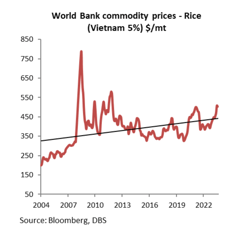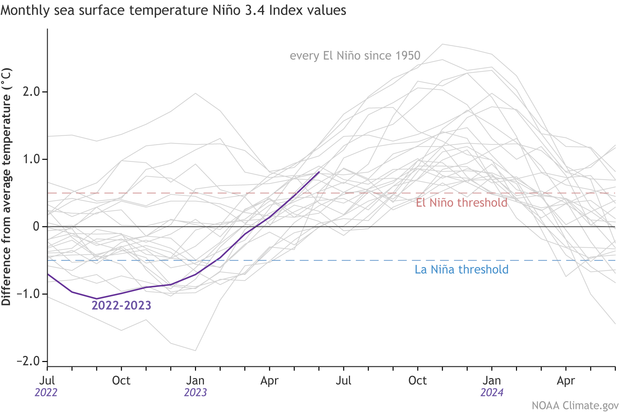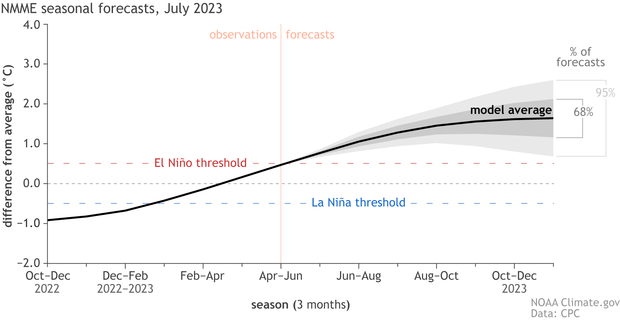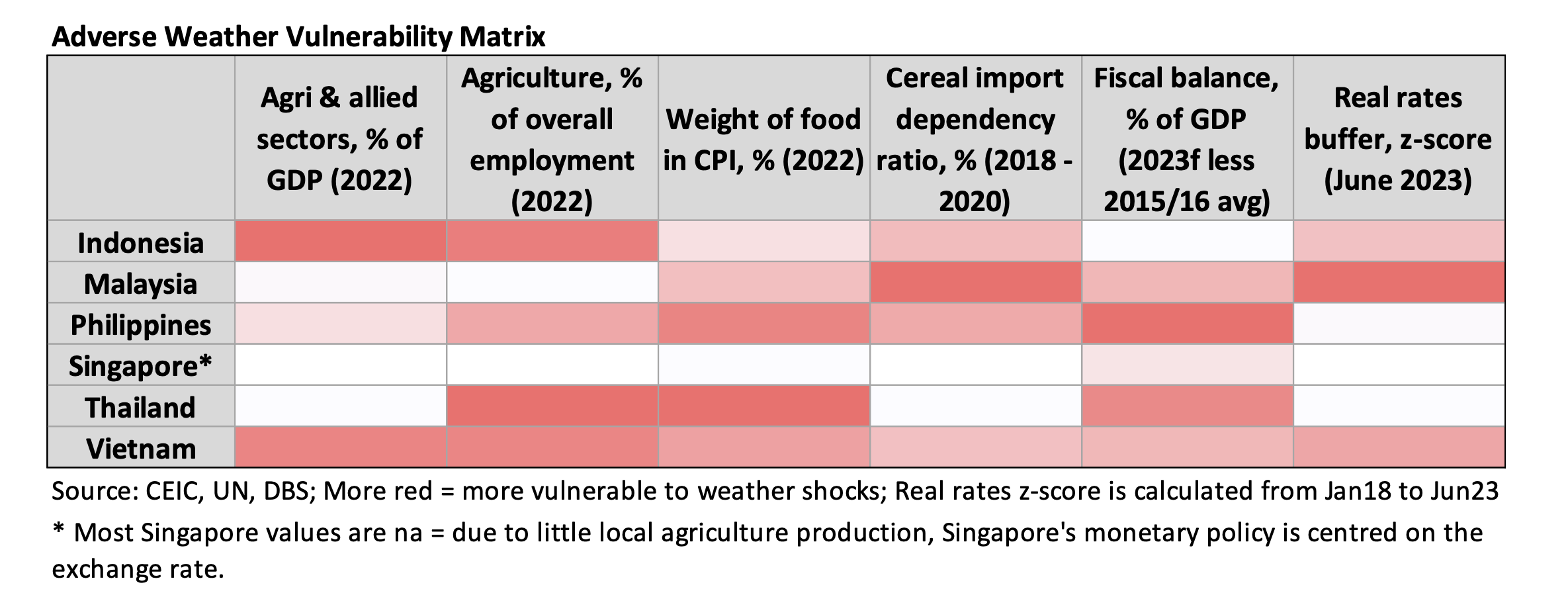
A new report by Singapore-based investment bank DBS has concluded that an El Nino event will have a significant impact on the agricultural output of ASEAN countries, driving up food inflation.
The analysis, titled ASEAN-6: Watching weather risks, found that previous El Nino events resulted in drier conditions, high temperatures, and a delay in rainfall.
Past El Niño events resulted in a delay in crop sowing and reduced agricultural output, with rice to be most affected. Higher power demand to counter high temperatures can also have an inflationary impact.  Export bans by key trading partners have been a feature of previous events, and India banned exports of non-basmati white rice earlier this month, sending the commodity to a 10-year high.
Export bans by key trading partners have been a feature of previous events, and India banned exports of non-basmati white rice earlier this month, sending the commodity to a 10-year high.
India, Thailand, and Vietnam account for more than half the global rice exports.
According to the research report, seasonal rains in Thailand are 40% below normal and reservoirs are half of their capacity with the Thai government urging its farmers to cut their rice planting to conserve water, and switch to less water consuming crops, after earlier suggestions to grow one paddy crop cycle instead of two.
The opposite problem has struck China, with Typhoon Doksuri inundating corn and rice crops in the north.
"Flood will indeed affect rice production in the northeast, and it may reduce rice production by 3%-5% in flood-affected areas," Ma Wenfeng, senior analyst at Beijing Orient Agribusiness Consultant, told Reuters.
Fitch Ratings on Friday said heavy rain in China's grain-producing region is likely to put upward pressure on global rice prices. Corn has also been affected with corn imports expected to climb to an all-time high of 23 million metric tons after 2% of the national crop was flood affected.
El Niño looking more likely
The investment references a blog post appearing on the US government’s Climate.gov that presents the current state of predictive models.
Based on current sea temperatures, the latest US National Weather Service estimates there is a 95% probability that El Niño will continue through through December 2023 to February 2024.

Based on that sea level temperature, the confidence that an El Niño event will occur is high.
The weather pattern will be fuelled by warmer-than-average water under the surface of the tropical Pacific, where subsurface temperatures are the third-warmest June value since 1979. This warm subsurface will feed the surface for the next few months, helping to sustain El Niño conditions, the analysis concluded.
Expectation of severity is also increasing. The article estimates there is about an 80% chance that this El Niño will be at least moderate, a 50% chance it will be strong, and 20% chance it will be severe. Generally, the report stated, the stronger the sea surface temperature anomaly, the stronger the atmospheric response, and the more consistent the pattern of El Niño’s remote impacts on rain and temperature patterns.
Impact on ASEAN nations
According to the researchers, countries are already stepping up imports of cereals and food grains to cap domestic prices. Earlier this year Indonesia signed an import agreement with four countries to quell rising domestic prices as well as build buffers, while the Philippine government also plans to extend reduced import tariffs on rice and other commodities beyond 2023 to ease inflationary pressures.
Thailand and Philippines are most vulnerable to inflation with food accounting for the largest share of the inflation basket. Malaysia and Philippines are highly dependent on cereal imports, while Singapore imports over 90% of its food.
The DBS bank researchers see the impact on ASEAN countries below.

 Results
Results
